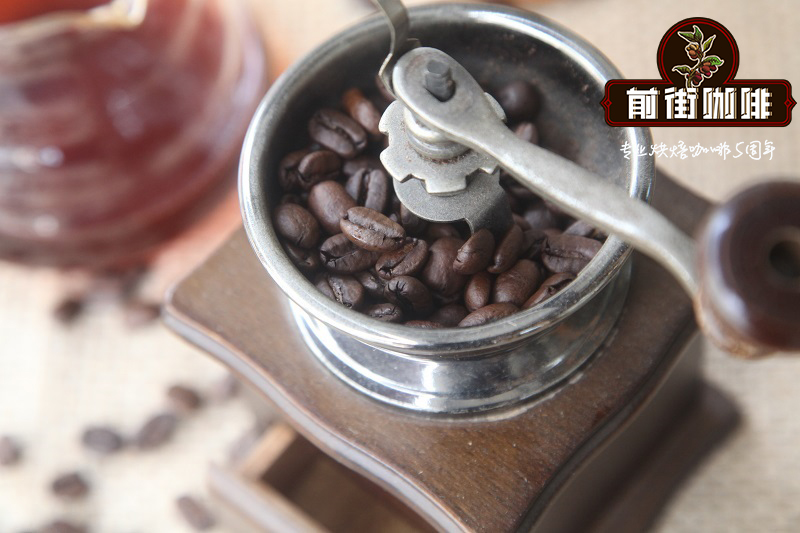Brazilian Coffee, the ancestor of Honey-treated Coffee | Brazilian Fine Coffee

Professional coffee knowledge exchange more coffee bean information please follow the coffee workshop (Wechat official account cafe_style)
If there must be a definition of Brazilian coffee, it is balance!
Balanced flavor, smooth taste, constitute Brazilian coffee!
In the minds of many people, the taste of Brazilian coffee is a typical coffee taste.
Brazil is most famous for football, followed by coffee. It is the largest coffee producer and exporter in the world, and its output value accounts for more than 30% of the world's coffee output. About 300000 of the farmers here are engaged in coffee farming.
In 1727, Francesco, a Portuguese diplomat, was sent to French Guiana to mediate the territorial dispute. In the process of mediation, he hooked up with the wife of a local official. At parting, the official's wife quietly hid several coffee seeds in the flowers given to him. Later, he planted coffee seeds in Brazil and achieved good results.
It is this important romance story that coffee has taken root and sprouted in Brazil, and Central and South America has begun to introduce and grow coffee because of the widespread cultivation in Brazil. By 1845, Brazil had produced 45% of the world's coffee beans, and for more than 150 years, Brazilian coffee had been the largest coffee producer in the world.
The calm and supple of Brazilian coffee
Friends who are familiar with Brazilian coffee must know that Brazil not only has high-quality high-quality coffee, but also an indispensable basic bean in many blended coffees. The most important feature of Brazilian coffee taste is peace, so that people do not have to have too much burden on bitter and sour taste, smooth taste, suitable for matching with all kinds of coffee. The gentleness of Brazilian coffee is also closely related to the conditions of Brazilian coffee.
Unlike most of the world's coffee grown in the mountains, most of Brazil's coffee is grown in the plains. Although the plains of Brazil are low above sea level (also 600-900m). But the area is wide, and it is located in the temperate zone, and the temperature is suitable, so it is also suitable for coffee growth. So Brazil has adopted a strategy of winning by quantity.
For this reason, Brazilian coffee does not have the hardness and strong sour taste of high-altitude coffee, and the beans themselves are soft, so most Brazilian commercial beans are easy to bake and taste softer.
The ancestor of honey-treated coffee
When it comes to Brazilian coffee, another thing I have to say is that half-sun treatment in Brazil also has a lot to do with all kinds of popular honey treatments.
Because Brazil is short of water, but most of the climate is humid and the drying efficiency is inefficient. So when sun washing doesn't work, smart Brazilians have created a way to quickly improve the drying efficiency by ploughing the peel of coffee and drying it on the bedstead / cement floor.
And this method, spread to Costa Rica, has been constantly improved in detail and turned into honey treatment. It can be said that Brazil is the ancestor of coffee honey processing.
The continuous attack of Brazilian boutique coffee
Brazil's economy is moving forward because of coffee, and Brazilian coffee has been constantly changing in recent years. First, Brazilian Coffee established the Brazilian Fine Coffee Association (BSCA) in 1991. The association, launched by 12 pioneers and entrepreneurs, aims to improve the quality of more Brazilian coffee and promote the commercialization and industrialization of Brazilian coffee. At the same time, in 1999, Brazil began to implement the COE coffee evaluation system.
Second, Brazil is also constantly experimenting with boutique tree species, whether it is the familiar yellow bourbon, yellow Cadura, Mondonovo, or the internationally popular summer roses, or all kinds of experimental varieties are planted in Brazil. At the same time, Brazil also continues to study all kinds of anaerobic coffee treatment methods, and farmers even improve the quality of coffee through various cup quality testing competitions.
Because of the large size of Brazilian territory, you will find different flavors of coffee even in the same state. But generally speaking, Brazilian coffee is high in sweetness, clean, supple and low in acidity, with nutty flavor, balance and physical fitness.
END
Important Notice :
前街咖啡 FrontStreet Coffee has moved to new addredd:
FrontStreet Coffee Address: 315,Donghua East Road,GuangZhou
Tel:020 38364473
- Prev

Introduction of roasting degree and flavor of small-grain coffee beans in Pu'er area of Yunnan Province, China
Professional coffee knowledge exchange more coffee bean information Please pay attention to the coffee workshop (Wechat official account cafe_style) thousands of years of tea culture has laid a solid foundation for the agricultural development of Pu'er in Yunnan. On this basis, the elegant manor made a breakthrough, established a unique coffee manor, and used cutting-edge experiments.
- Next

Does Indonesia manning taste good? Which one do you recommend?
For more information about coffee beans, please follow the coffee workshop (Wechat official account cafe_style) Manning Coffee has a long history. In the 17th century, the Dutch introduced Arabica coffee saplings to Indonesia for the first time. On February 14, 1942, the Japanese attacked Sumatra, and a month later the Netherlands surrendered. On March 15, Japanese troops captured Indonesia.
Related
- Detailed explanation of Jadeite planting Land in Panamanian Jadeite Manor introduction to the grading system of Jadeite competitive bidding, Red bid, Green bid and Rose Summer
- Story of Coffee planting in Brenka region of Costa Rica Stonehenge Manor anaerobic heavy honey treatment of flavor mouth
- What's on the barrel of Blue Mountain Coffee beans?
- Can American coffee also pull flowers? How to use hot American style to pull out a good-looking pattern?
- Can you make a cold extract with coffee beans? What is the right proportion for cold-extracted coffee formula?
- Indonesian PWN Gold Mandrine Coffee Origin Features Flavor How to Chong? Mandolin coffee is American.
- A brief introduction to the flavor characteristics of Brazilian yellow bourbon coffee beans
- What is the effect of different water quality on the flavor of cold-extracted coffee? What kind of water is best for brewing coffee?
- Why do you think of Rose Summer whenever you mention Panamanian coffee?
- Introduction to the characteristics of authentic blue mountain coffee bean producing areas? What is the CIB Coffee Authority in Jamaica?

